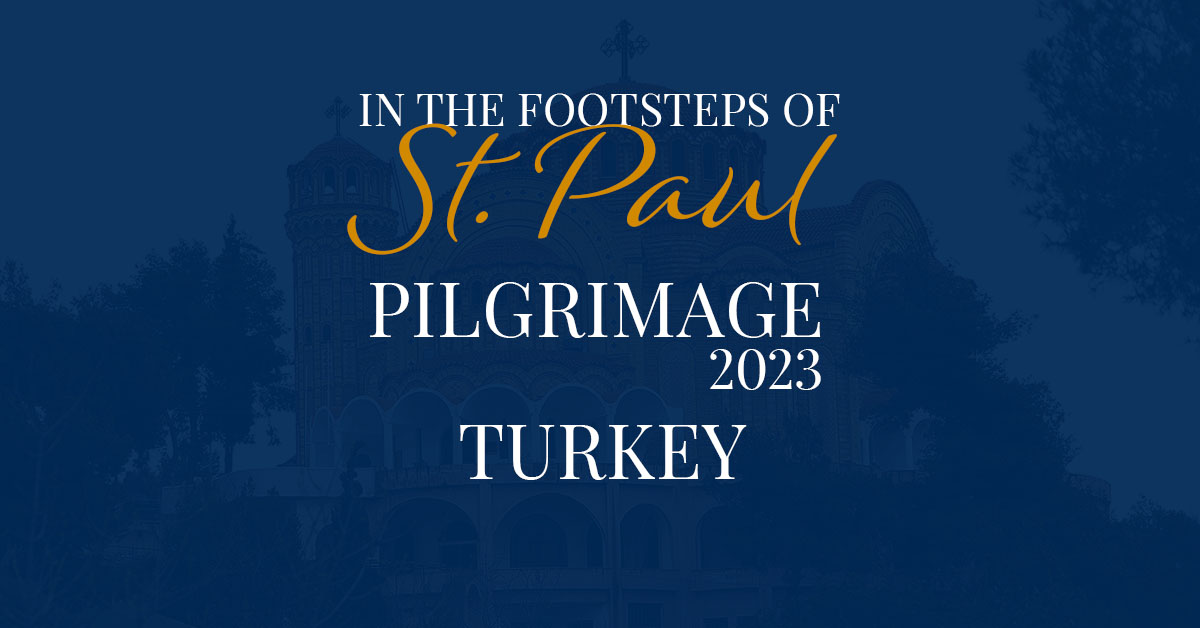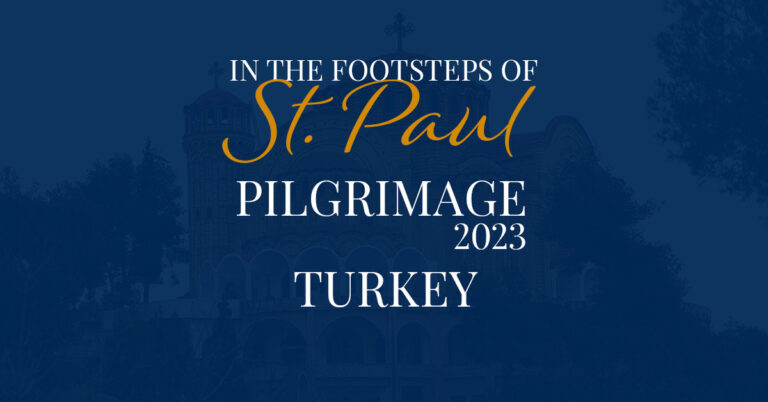Ephesus
The ancient city of Ephesus was a major center of the Roman world. It was a port city with a population that was near 250,000.
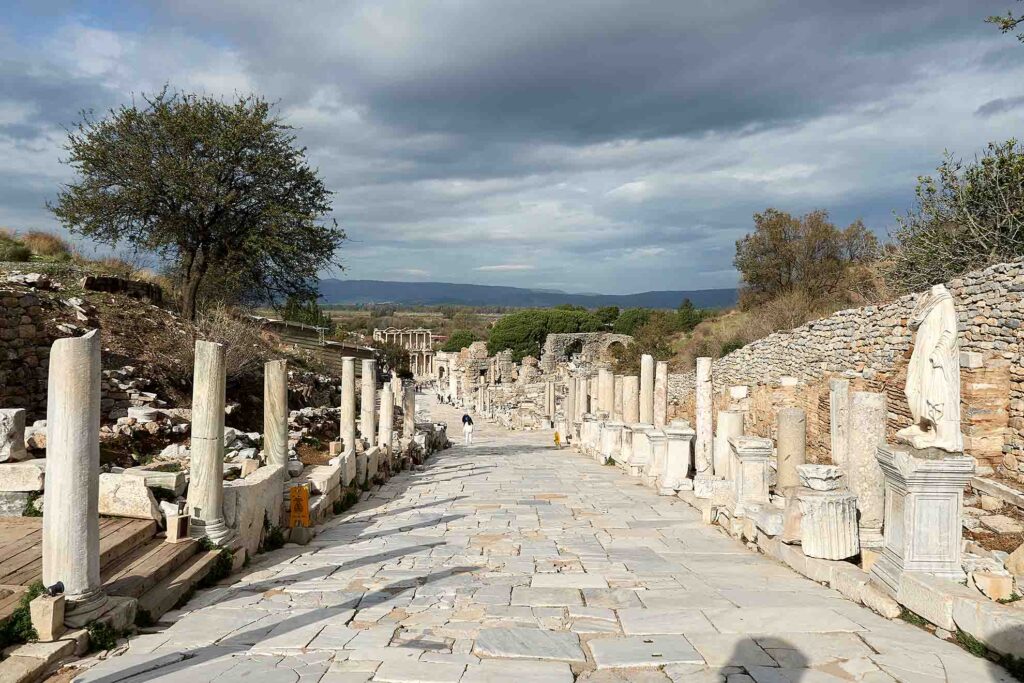
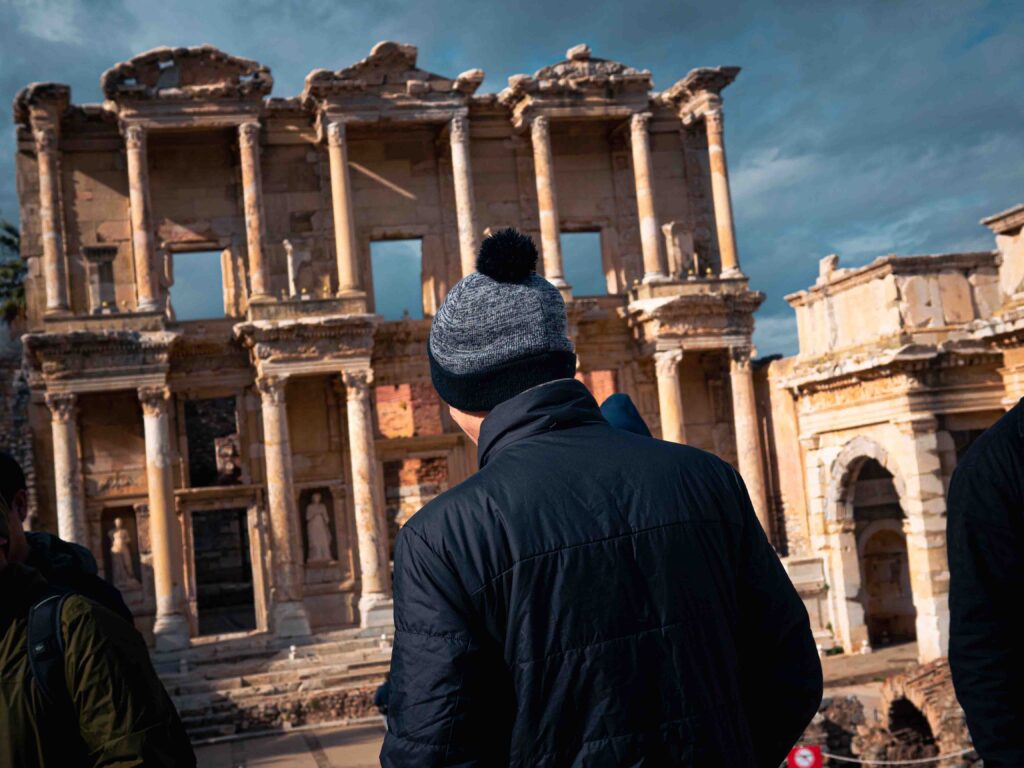
The city had streets were made of marble and had a library that was second only to the great library of Alexandria. In the city were many temples to the Roman gods, especially the goddess Artemis, whose name was repeated for two hours in the theatre when Paul tried to proclaim the gospel in Ephesus.
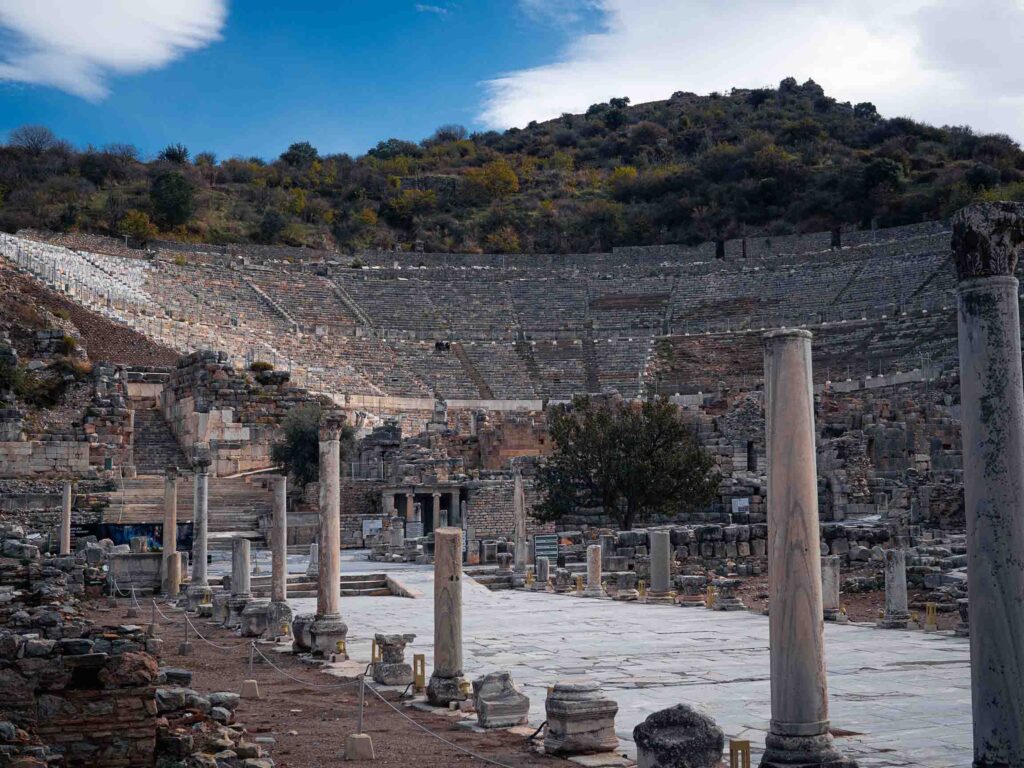
Just outside this huge, wealthy, powerful city with statues of emperors over fifty feet tall, on a mountain overlooking the city, in a simple, humble, small stone house, lived a woman who, in the year 351, a council would dogmatically declare to be the Mother of God.
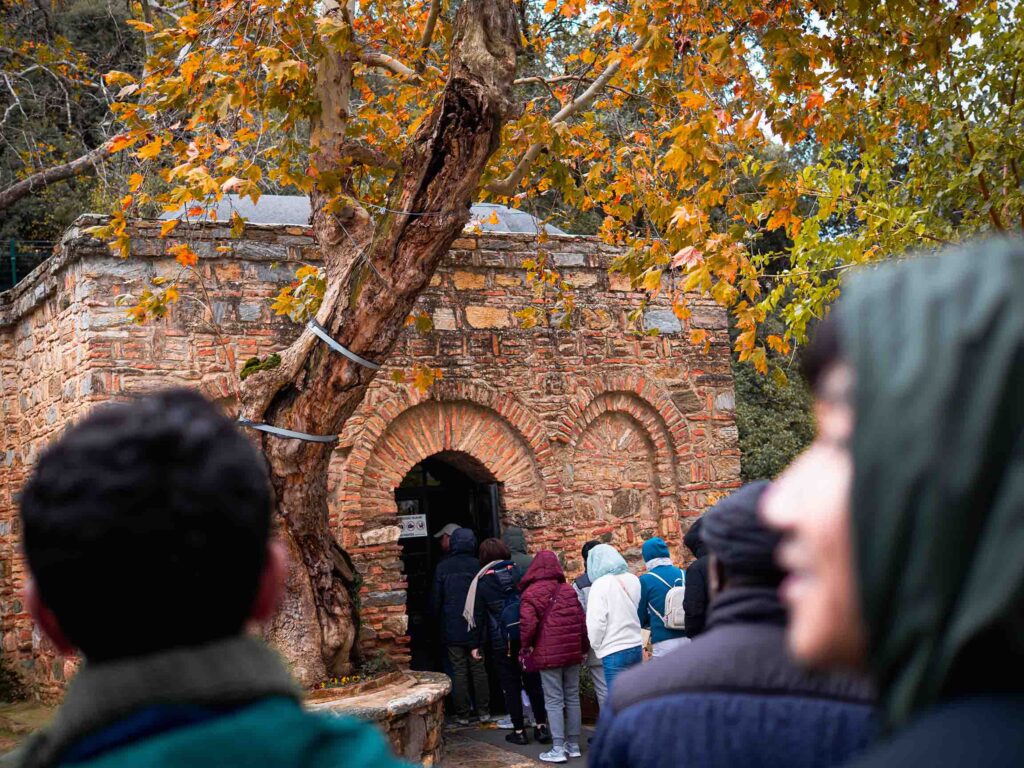
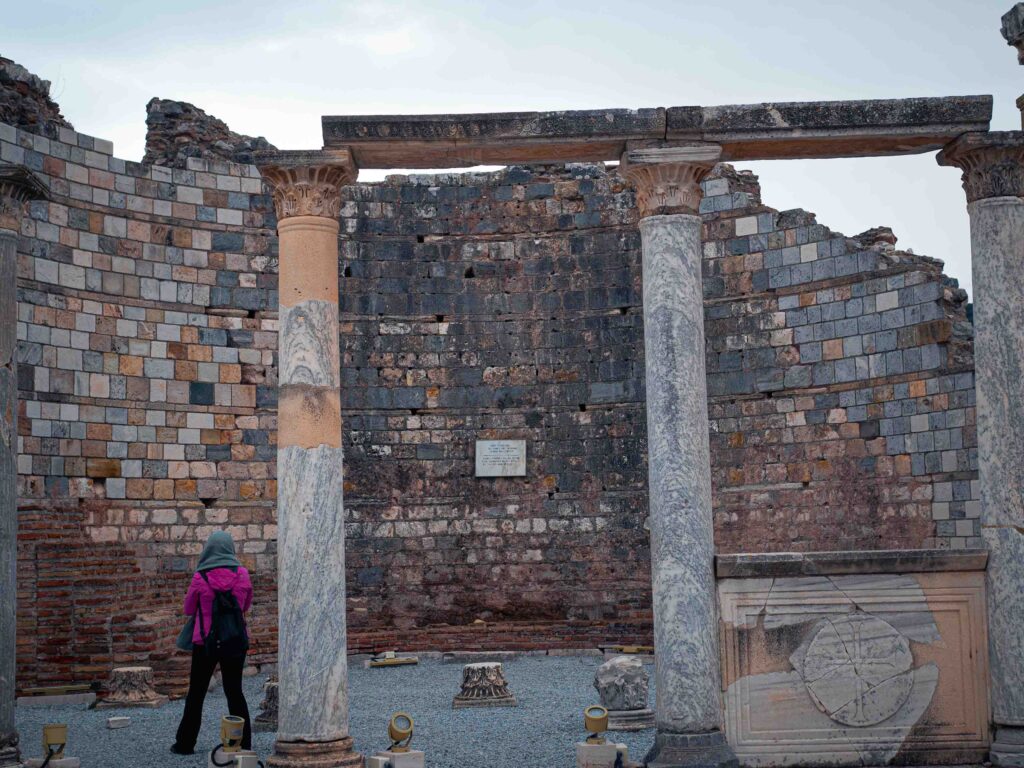
Her prayer rang in our ears as we walked through the city: “He has cast down the mighty from their thrones and has lifted up the lowly” (Lk 1:52). Today, there are no Roman emperors, but this lowly woman’s Son is proclaimed throughout the world. The gods of the Temples of Ephesus have all been destroyed, but Temples to the One True God are dedicated in Mary’s honor throughout the world. His has cast down the mighty from their thrones, but Mary, who called herself his lowly servant, has been taken up into heaven.
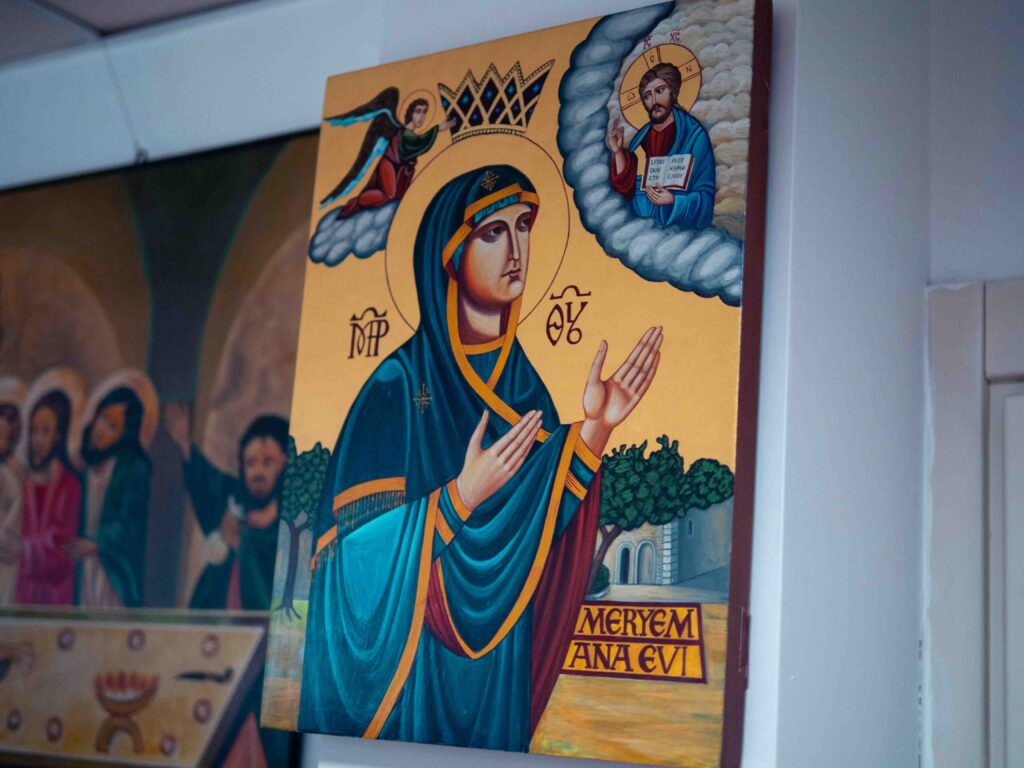
Ephesus shows in stone God’s love for littleness. May it serve as reminder to us to treasure our own littleness so that like St. Paul we may be “the least of all the holy ones” and rely not of our own opinions and abilities, but on the power of the gospel, knowing that He who is now at work in us can do immeasurable more than we ask or imagine (Ep 2:8, 2:20).
-Ben Schoonmaker, Diocese of Peoria

